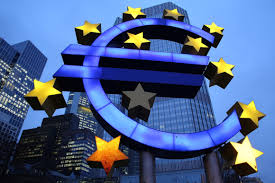
With restrictions induced by the novel coronavirus pandemic returning back into the region, there was a slowing down of economic activity in the euro zone in October, according to reported quoting preliminary data.
A four month low was touched in October by the flash euro zone PMI composite output index at 49.4 compared to 50.4 in September. This index is a measure of activity in both manufacturing and services sectors of the region. A contraction in activity is reflected for a reading below 50.
The manufacturing in the regions has showed somewhat resilience but there has been a slowdown in services activity to a five-month low, according to the latest figures.
“The euro zone is at increased risk of falling into a double-dip downturn as a second wave of virus infections led to a renewed fall in business activity in October,” Chris Williamson, chief business economist at IHS Markit, said in a statement.
The data “revealed a tale of two economies, with manufacturers enjoying the fastest growth since early-2018 ... but intensifying Covid-19 restrictions took an increasing toll on the services sector,” he added.
These latest depressed numbers also coincide with imposition of new restrictions across the euro zone as a second wave of coronavirus infections spread throughout the region.
Last week new curfew was imposed by France and later also expanded the restrictions to other parts of the country. According to the latest restrictions, restaurants and bars in cities such as Paris, Marseille and Lyon now close down at 9 p.m. local time. The highest ever number of new daily infections were reported on Thursday by the French authorities.
In October, the composite output index of France dropped to 47.3 marking a five month low compared to the value being at 48.5 in September.
And with a spike in Covid-19 infections in the country, partial lockdown was imposed in the Netherlands. Under the new restrictions no more than three home visitors are allowed per day while restaurants and bars have been closed completely even though people can still take away food.
On the other hand, a four-week ban on household visits was announced by Ireland while advice to people against traveling to ski resorts was given by the German authorities.
In October, the composite output index of Germany reached 54.5 given the importance of its manufacturing industry for the overall economy.
“The divergence is even starker by country. While Germany is buoyed by its manufacturing sector booming to a degree exceeded only twice in almost 25 years of survey history, the rest of the region has sunk into a deepening downturn,” Williamson also said.
There is now additional pressure on the European Central Bank because of the challenges that the euro zone is facing in the wake of the pandemic. Further monetary stimulus is on the way prior to the end of e year, believe economists.
(Source:www.cnbc.com)
A four month low was touched in October by the flash euro zone PMI composite output index at 49.4 compared to 50.4 in September. This index is a measure of activity in both manufacturing and services sectors of the region. A contraction in activity is reflected for a reading below 50.
The manufacturing in the regions has showed somewhat resilience but there has been a slowdown in services activity to a five-month low, according to the latest figures.
“The euro zone is at increased risk of falling into a double-dip downturn as a second wave of virus infections led to a renewed fall in business activity in October,” Chris Williamson, chief business economist at IHS Markit, said in a statement.
The data “revealed a tale of two economies, with manufacturers enjoying the fastest growth since early-2018 ... but intensifying Covid-19 restrictions took an increasing toll on the services sector,” he added.
These latest depressed numbers also coincide with imposition of new restrictions across the euro zone as a second wave of coronavirus infections spread throughout the region.
Last week new curfew was imposed by France and later also expanded the restrictions to other parts of the country. According to the latest restrictions, restaurants and bars in cities such as Paris, Marseille and Lyon now close down at 9 p.m. local time. The highest ever number of new daily infections were reported on Thursday by the French authorities.
In October, the composite output index of France dropped to 47.3 marking a five month low compared to the value being at 48.5 in September.
And with a spike in Covid-19 infections in the country, partial lockdown was imposed in the Netherlands. Under the new restrictions no more than three home visitors are allowed per day while restaurants and bars have been closed completely even though people can still take away food.
On the other hand, a four-week ban on household visits was announced by Ireland while advice to people against traveling to ski resorts was given by the German authorities.
In October, the composite output index of Germany reached 54.5 given the importance of its manufacturing industry for the overall economy.
“The divergence is even starker by country. While Germany is buoyed by its manufacturing sector booming to a degree exceeded only twice in almost 25 years of survey history, the rest of the region has sunk into a deepening downturn,” Williamson also said.
There is now additional pressure on the European Central Bank because of the challenges that the euro zone is facing in the wake of the pandemic. Further monetary stimulus is on the way prior to the end of e year, believe economists.
(Source:www.cnbc.com)





